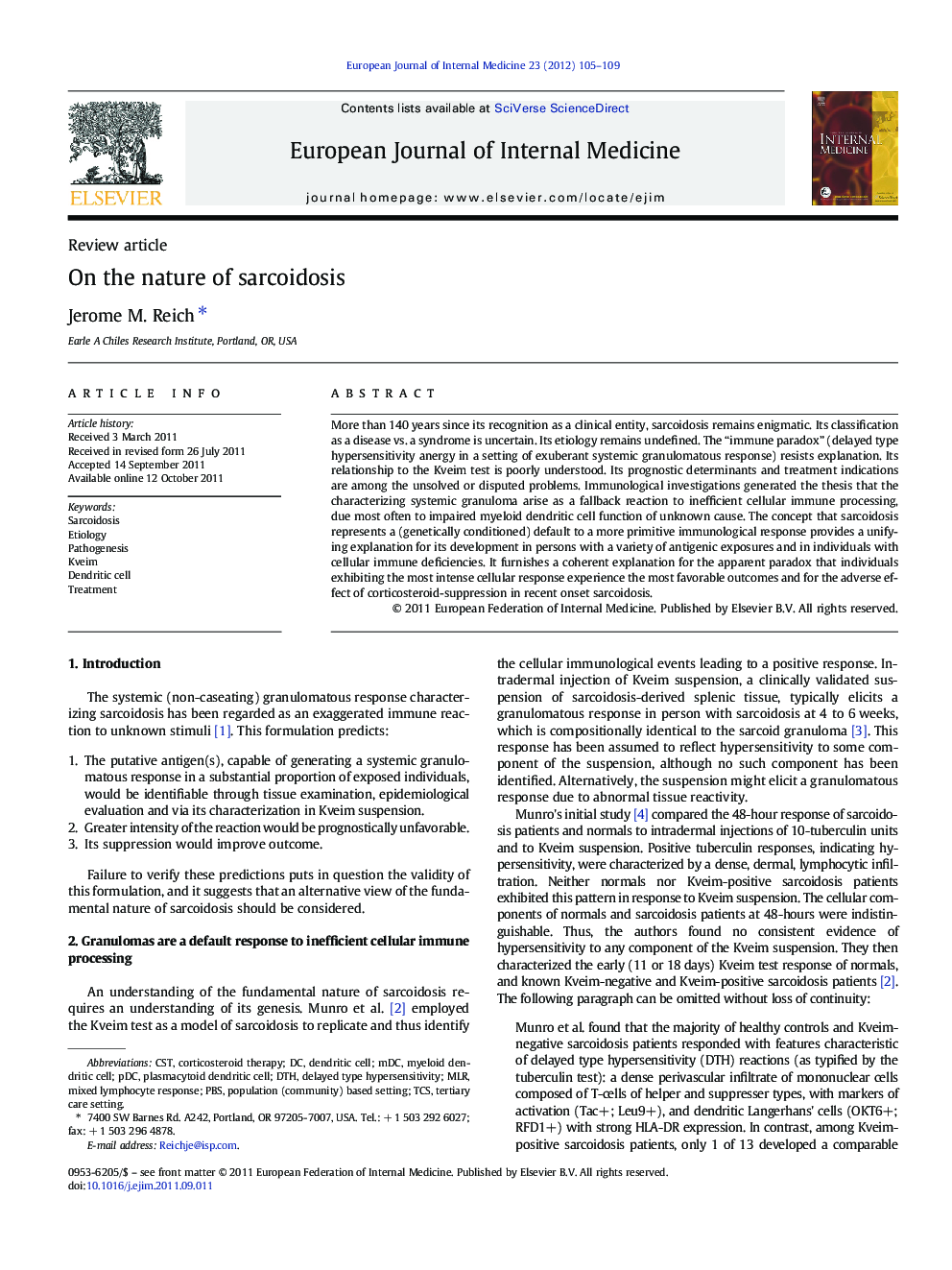| Article ID | Journal | Published Year | Pages | File Type |
|---|---|---|---|---|
| 3467314 | European Journal of Internal Medicine | 2012 | 5 Pages |
More than 140 years since its recognition as a clinical entity, sarcoidosis remains enigmatic. Its classification as a disease vs. a syndrome is uncertain. Its etiology remains undefined. The “immune paradox” (delayed type hypersensitivity anergy in a setting of exuberant systemic granulomatous response) resists explanation. Its relationship to the Kveim test is poorly understood. Its prognostic determinants and treatment indications are among the unsolved or disputed problems. Immunological investigations generated the thesis that the characterizing systemic granuloma arise as a fallback reaction to inefficient cellular immune processing, due most often to impaired myeloid dendritic cell function of unknown cause. The concept that sarcoidosis represents a (genetically conditioned) default to a more primitive immunological response provides a unifying explanation for its development in persons with a variety of antigenic exposures and in individuals with cellular immune deficiencies. It furnishes a coherent explanation for the apparent paradox that individuals exhibiting the most intense cellular response experience the most favorable outcomes and for the adverse effect of corticosteroid-suppression in recent onset sarcoidosis.
